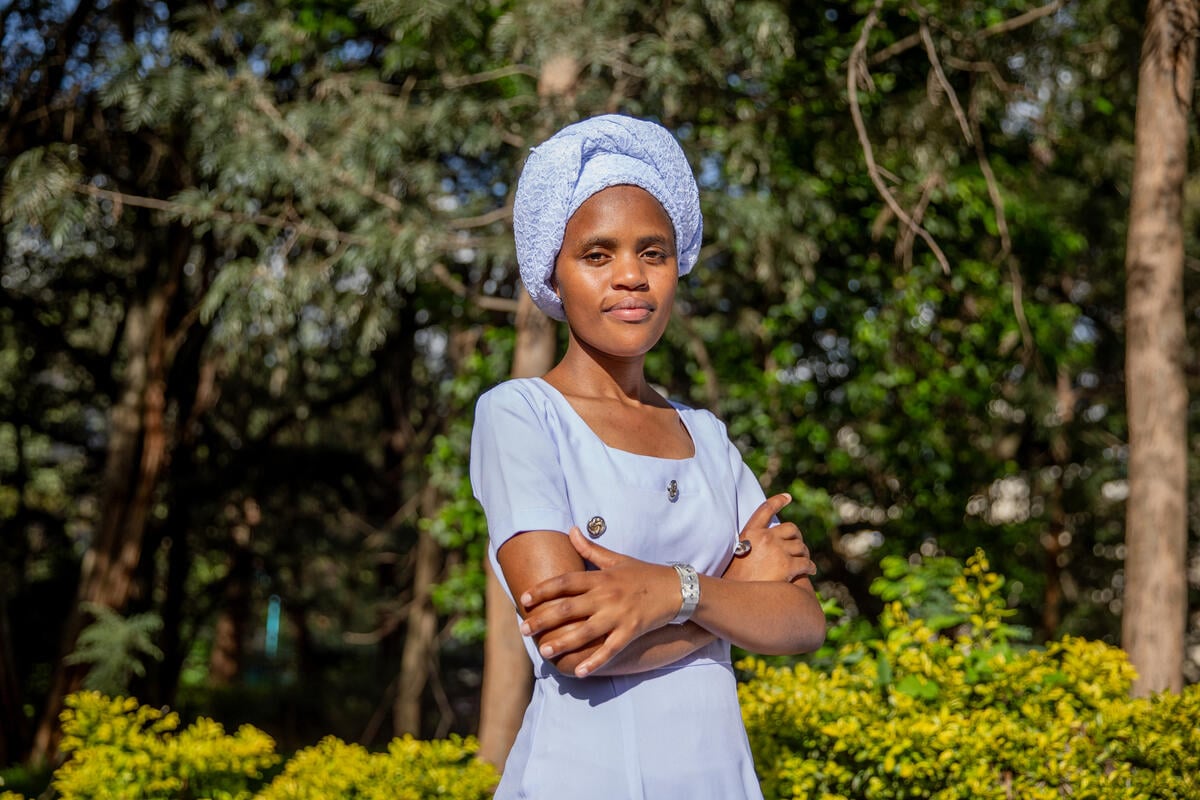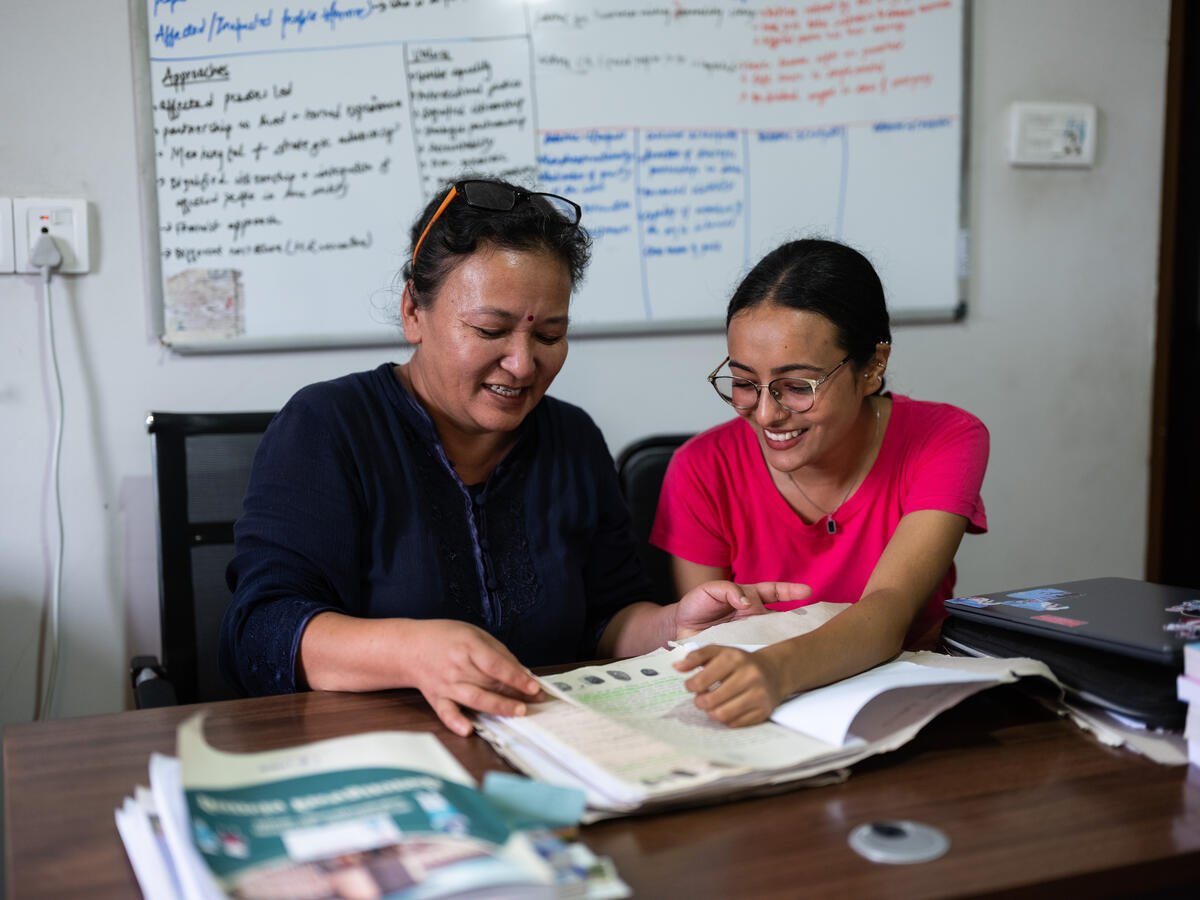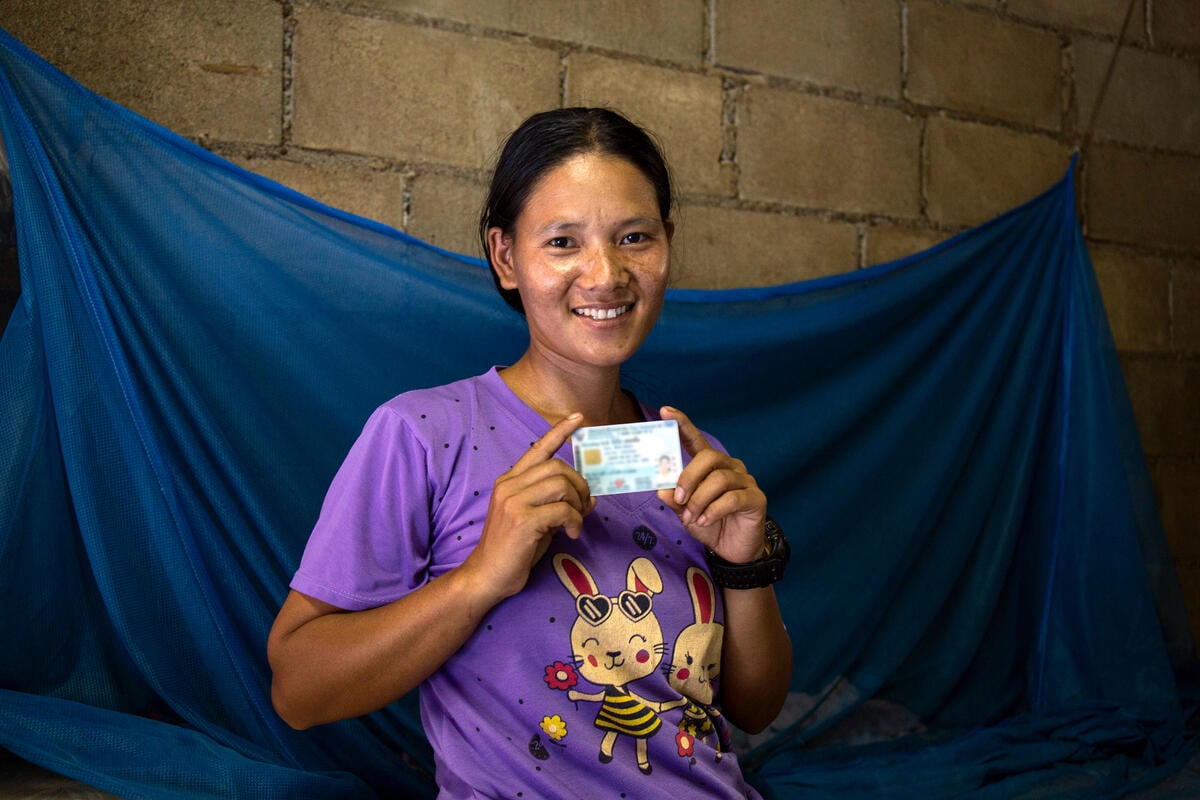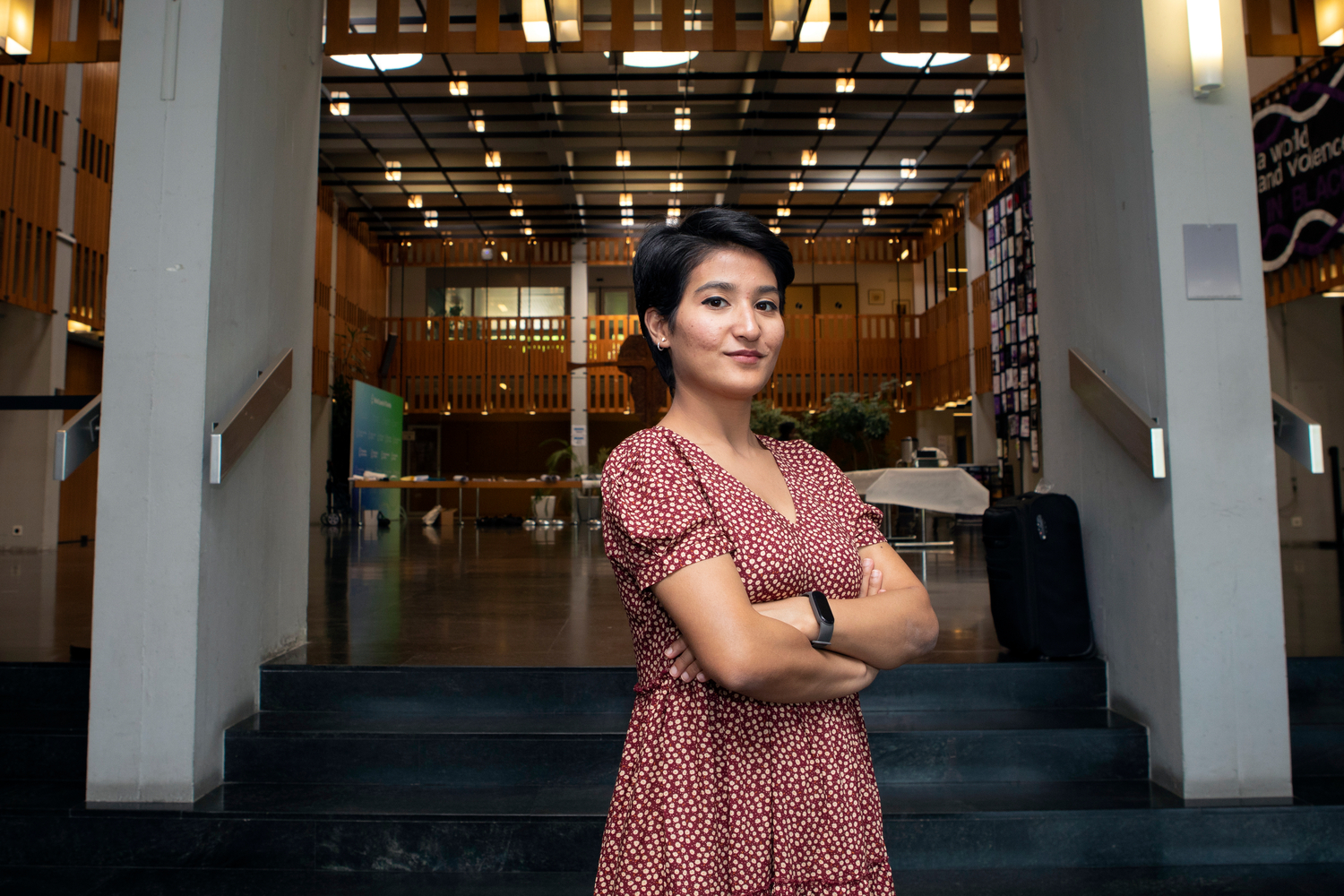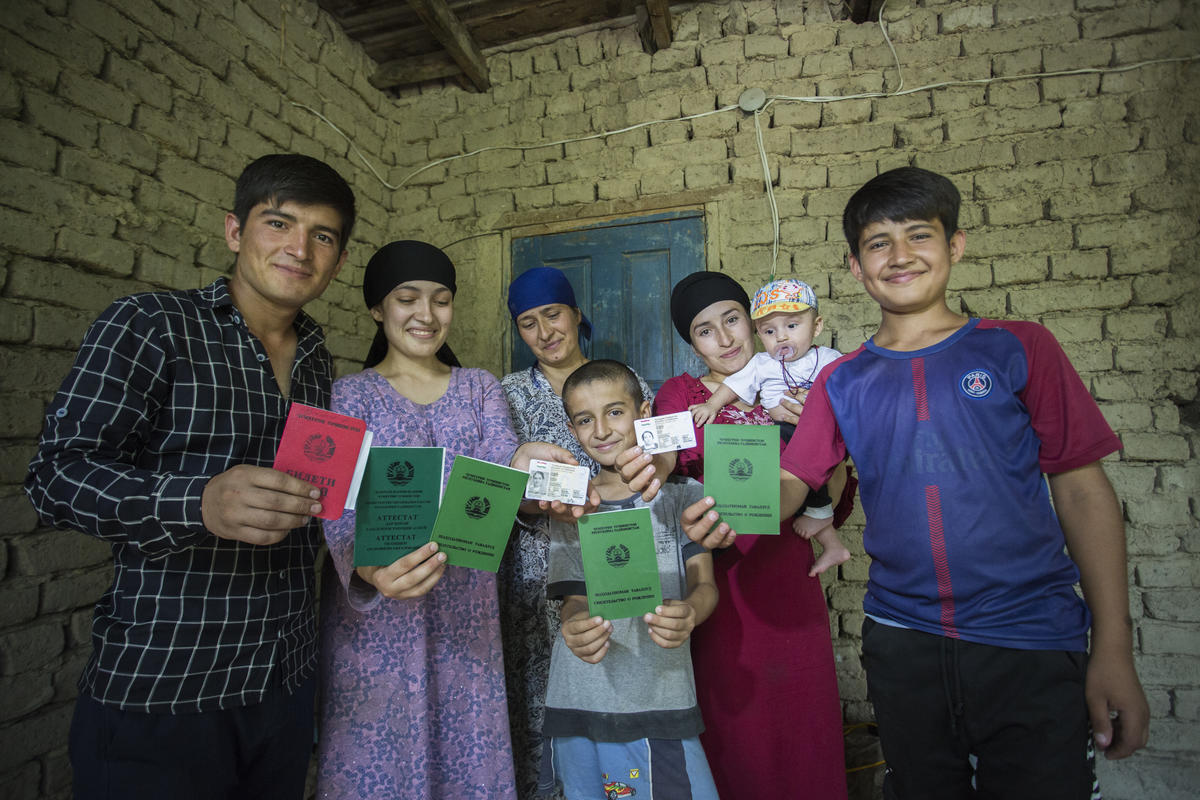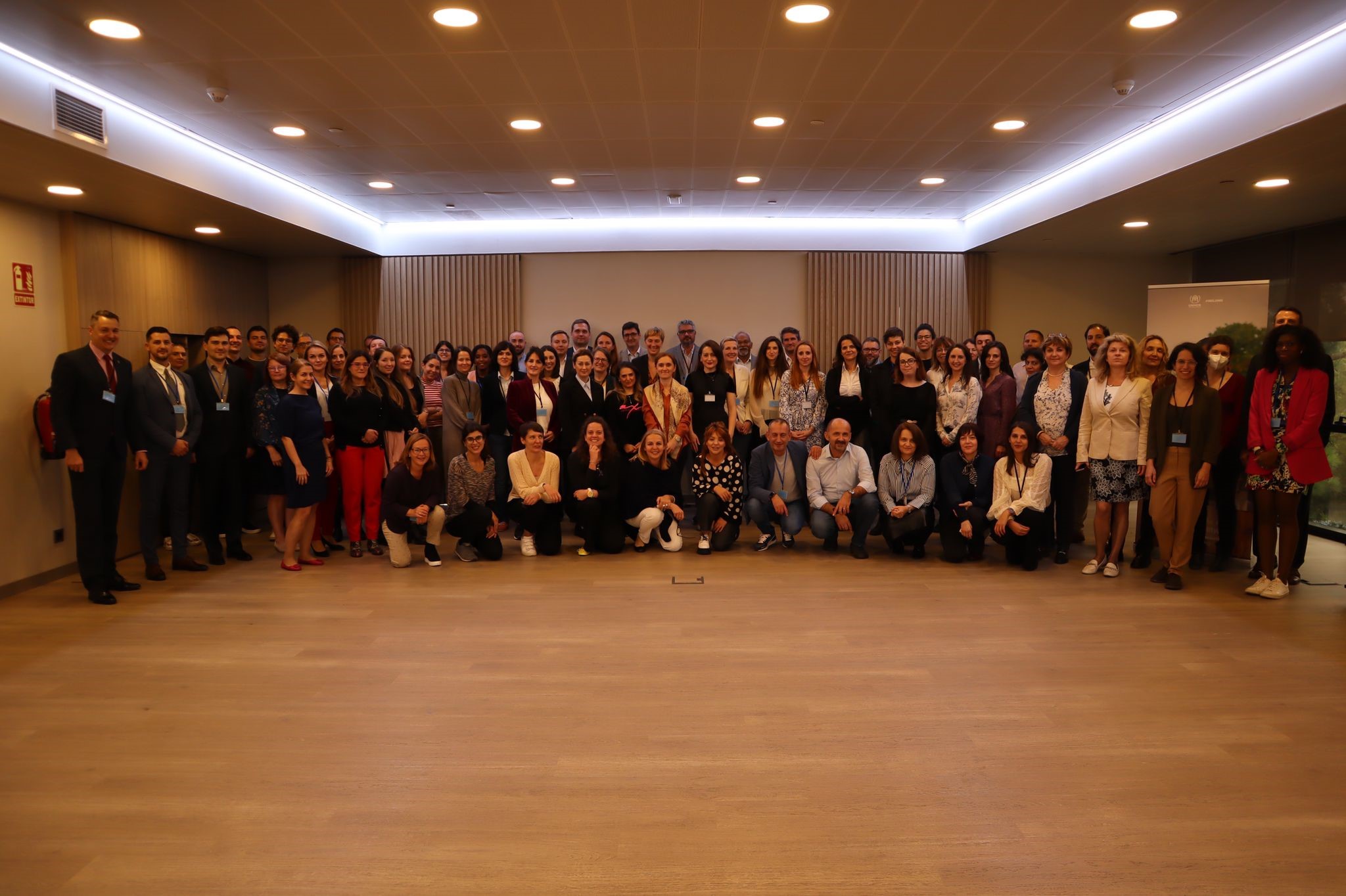UNHCR project helps ethnic minority in Fergana Valley get Kyrgyz nationality
UNHCR project helps ethnic minority in Fergana Valley get Kyrgyz nationality
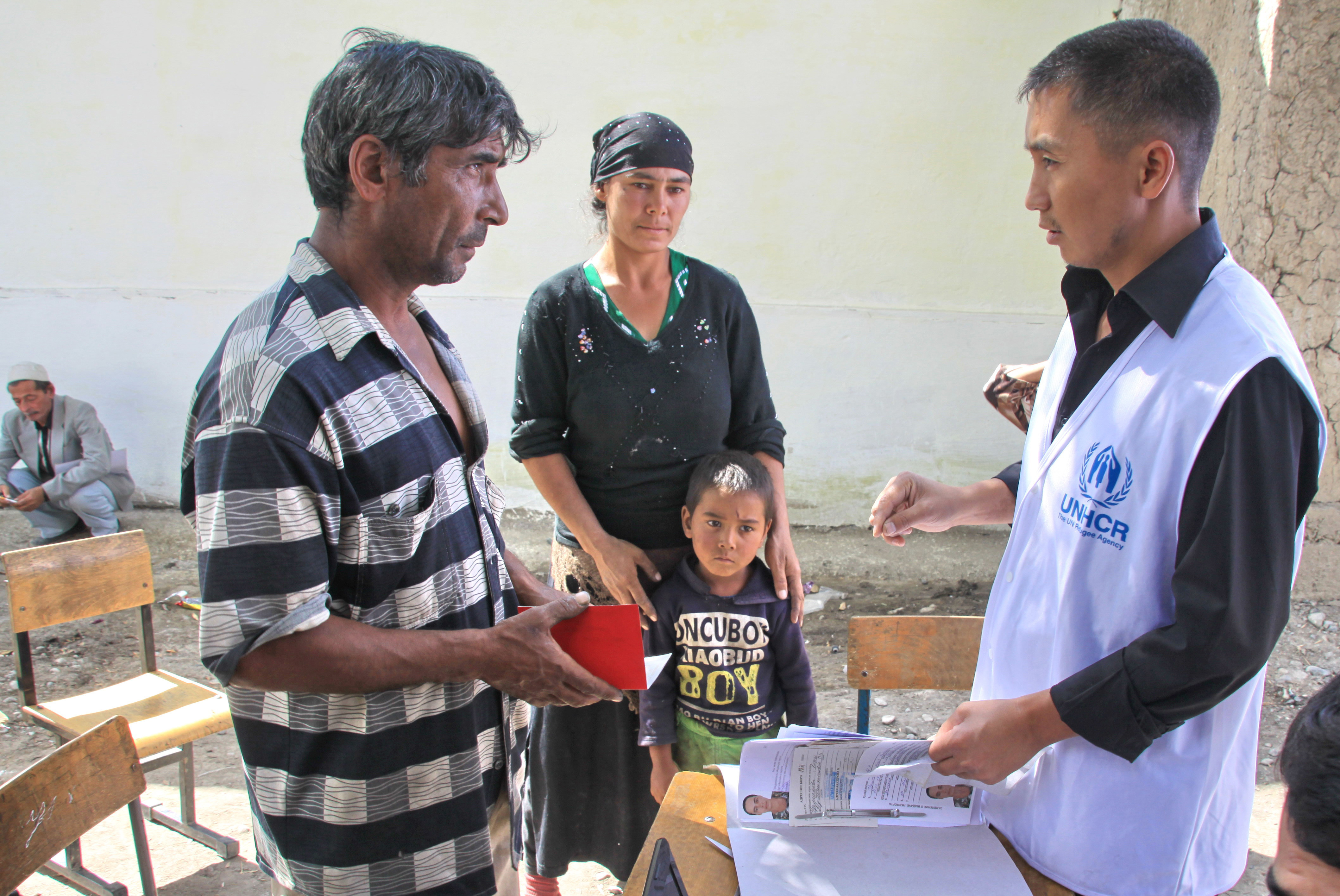
JANY-KYSHTAK, Kyrgyzstan, December 5 (UNHCR) - The minority Lyuli people have been living in Jany-Kyshtak and other villages of the fertile Fergana Valley for more than 200 years. Many grew up under Soviet rule, when the Fergana straddled the Soviet republics of Uzbekistan, Tajikistan and Kyrgyzstan, and nationality was not a major consideration.
Up to half of the 3,700 inhabitants - all ethnic Lyuli - of the village in western Kyrgyzstan never obtained personal identity documents, but in recent years they have found that lack of such documents, including birth certificates, can restrict their access to many basic human rights in independent Kyrgyzstan.
The UN refugee agency is trying to help the Lyuli regain an identity as part of a wider project to assist thousands of people in the country whose nationality is undetermined. They are at risk of statelessness because they are completely undocumented, which means they face particular difficulties establishing that they qualify for Kyrgyz nationality.
Koria Urmanova, who was born in 1977 when Kyrgyzstan was part of the Soviet Union, has never had a passport or other documentary proof of nationality. "My parents died when I was a young child. When the time came to get a passport [at age 16], I did not know where my birth certificate was, so I did not get the passport," she explained.
In time she got married and over the years gave birth at home to six children, none of whom were registered at birth. At first, this was not a major problem, even after the disintegration of the Soviet Union in 1991. As her children grew older, she realized that lack of documentation could hinder their and her access to basic rights, including education, health care, employment, social allowances and more.
But with the help of UNHCR, its local partner and the government, Koria and many of her neighbours have been able to obtain documents that are vital if they are to live a normal life in Kyrgyzstan, which became independent in 1991. "Thanks to this UNHCR project, my eldest son, who has just turned 12, received his birth certificate," said Koria, who was discussing how to get a passport with visiting lawyers from the NGO, Fergana Valley Lawyers without Borders. "I hope that all my children and myself will eventually get proper identity documents," she added.
The visit of the legal team attracted a lot of interest here, with many questions about how to obtain identity documents and access to all of citizen's entitlements. Some of the older generation only hold invalid Soviet passports as identification and wanted to find out if they could trade these in for Kyrgyz passports to ensure access to government services.
The six-month project in Jany-Kyshtak village represents just a small fraction of UNHCR's efforts in Kyrgyzstan to help more than 20,000 people of all ethnic groups, including Uzbeks and Tajiks, gain proper identity documents and prevent statelessness. In the first nine months of this year, more than 9,360 people handed in their expired Soviet passports and were given Kyrgyz ones. In Jany-Kyshtak, 330 villagers have received free legal assistance which helped 106 of them obtain birth certificates or passports.
Azizbek Ashurov is the director of Fergana Valley Lawyers without Borders, which works with UNHCR by providing legal aid to stateless people and people of undetermined nationality. He listed the main reasons for statelessness in Kyrgyzstan. "First is the collapse of the USSR [Soviet Union]. People did not exchange their Soviet passports and became stateless," he said, adding that a second reason was the lack of harmony between the nationality laws in different countries.
"People moved from one country to another, got married, thus finding themselves in situations that were not envisaged by national laws. Gaps in the different legislations led to the difficulty in acquiring a citizenship." He cited inefficient bureaucracy as the third reason.
But the problem has also been exacerbated over the years by a simple lack of awareness among the public about the importance of obtaining documentation, and especially in deprived rural areas. "I hold many meetings with residents to raise awareness on the importance of documents," affirmed Ruslan Urinov, the Jany-Kyshtak village chief.
"These people were previously nomads; they were never documented. This explains why parents did not have identity documents and never got documents for their children. Now the situation is changing. People want to get documents and they need advice and support," he stressed. In addition, he noted, some children did not have birth certificates because they were born at home. If their parents lacked documents, they could not obtain birth certificates and passports for their children.
But despite the distinctive and independent way of life of the Lyuli in Jany-Kyshtak and other villages, which has led to discrimination in the past, they have started to understand the importance of having documents to access things like health care and education.
The local school admits children even without documents, says the principal, Gulchehra Abdullaeva, adding that parents seem to be more and more interested in getting their children a basic education. "I am happy to see these children in my school. I have accepted them without identity documents because education is the right of everyone in our country," she said, adding: "A total 245 out of the 544 children study without documents."
Meanwhile, Munojat Orokova has finally received a Kyrgyz passport at the age of 40. Her application was complicated by the fact that her parents did not have documents and she was registered as the daughter of her in-laws when she got married. This has affected her eight children. "Two of them were born in a maternity clinic, the rest were born at home. None of my children has birth certification," she said. But, now she is optimistic that with the help of UNHCR and its partners, the children will have a brighter future.
By Ainagul Abdrakhmanova in Jany-Kyshtak, Kyrgyzstan

